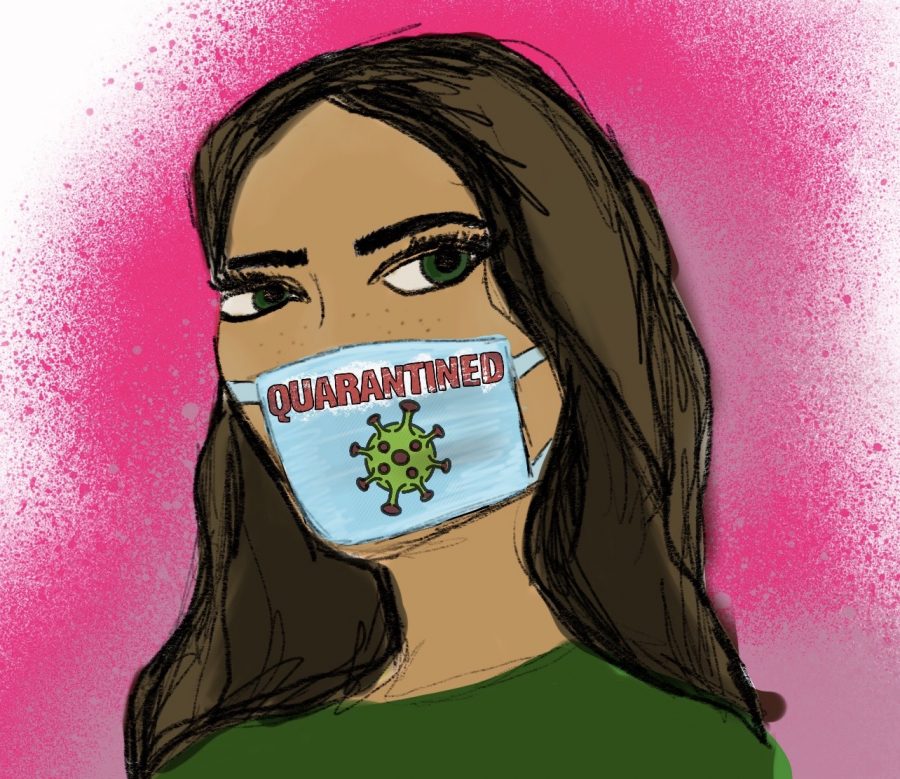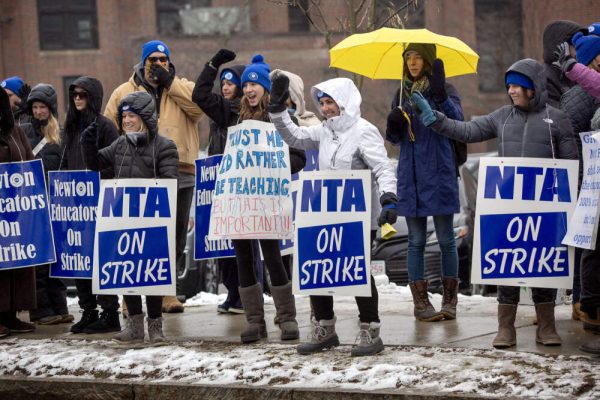Coronavirus Spreads Worldwide, Reaching Massachusetts
COVID-19 Confirmed Cases Surpass 300,000 Internationally
If exposed to the virus, it is recommended people are quarantined.
What is coronavirus?
Coronavirus (COVID-19) has taken the world’s attention in the last two months. The virus originated in Wuhan, China after transmission from animals, like bats and seafood, during the Lunar New Year celebrations. Similar to the flu, coronavirus then spreads from droplets through the air from a cough or sneeze.
Symptoms include fever, cough and difficulty breathing; the virus only becomes deadly when respiratory distress progresses to pneumonia. So far, the majority of deaths have been in older people or those with compromised immune systems, and many more patients have recovered. The death rate for all cases is about 3.4 percent. There is not yet a cure for COVID-19, so doctors focus on treating symptoms and maintaining organ functions with rest, medication and fluids.
Out of urban China, the World Health Organization reports that the virus has spread to 378,741 people worldwide with about 16,500 deaths. In the U.S., the CDC confirmed 33,404 cases across all 50 states, with 400 deaths. New York leads with over 15,000 cases from community spread; Massachusetts has 646, including in Walpole, leading Governor Baker to declare a state of emergency.
Looking forward, scientists are working quickly to understand the virus to develop treatments and vaccines. In the meantime, hospitals are preparing to treat the virus with infectious disease protocols and public health measures.
“We learned a lot from the 2014 Ebola outbreak,” Dr. Pritish Tosh of Mayo Clinic said in an interview.
Effects
The virus itself, and the fear that comes with it, has affected more than just people’s health. Decreased Chinese production and fears of Chinese products have led to stock market lows as companies’ values decline, and the demand for products like hand sanitizer, masks and Clorox has outpaced the supply, causing shortages.
International travel has also been greatly impacted. The U.S. government has recommended not to travel domestically or internationally, especially to countries with outbreaks, like China, Italy and Iran, and all are warned to pay attention to their health. Here at WHS, spring international trips to France and Panama have been canceled.
“The uncertainty of closed excursions, grounded flights and the possible quarantine of students upon returning home were additional contributing factors. The decision has not been easy; however, the safety and well being of our students is our highest priority,” superintendent Bridget Gough said in a letter to parents about the France trip on March 5.
Most colleges have sent students home, switching to online classes for the rest of the semester to avoid possible spread, and closing campuses to prospective students.
Most nonessential businesses have closed, and events expecting crowds have been canceled or postponed due to the virus, such the Coachella music festival in California and the Tokyo Summer Olympics.
Prevention
“The best way to protect yourself and your community is with everyday preventive actions, like staying home when you are sick and washing hands with soap and water to help slow the spread of respiratory illness,” Surgeon General of the United States Jerome Adams tweeted on Feb. 29.
Traditional hygiene measures like avoiding touching your face, washing hands for at least 20 seconds, using hand sanitizer with over 60% alcohol and vaccinations will prevent the majority of the population from getting the virus. Social distancing is encouraged, and people should stay at home if possible and remain six feet away from others. Masks like the N95 respirator are only meant to be worn after a fit evaluation, and the CDC only recommends them in a healthcare workplace or for those infected, not for daily use.
Misconceptions
The spread and coverage of the virus has led to panic in many, but it is not deadly in the vast majority of cases—in China, 2.3 percent of patients have died, and the data skewed towards older adults over 80. Prices of medical equipment going up make it more difficult for healthcare workers to access supplies, inaccurate stigmas against Chinese people lead to unneeded discrimination and economic consequences and sensationalist media only leads to mass hysteria.
“I think if students just take the media headlines and whatever is being presented by news, then it is potentially misrepresented information,” WHS science teacher Jennifer Reichheld said. “Students are educated enough to make their own choices and decisions. Being informed allows you to keep a level head and decide when there is really a true risk versus a media hype.”

Lauren Celardo, class of 2020, is a first year staff writer for The Rebellion. At Walpole High School, she is on the gymnastics and spring track teams...

Charlotte Clarke, class of 2021, is the Graphics Editor for The Rebellion. At Walpole High School, she runs cross country and track and is involved in...












